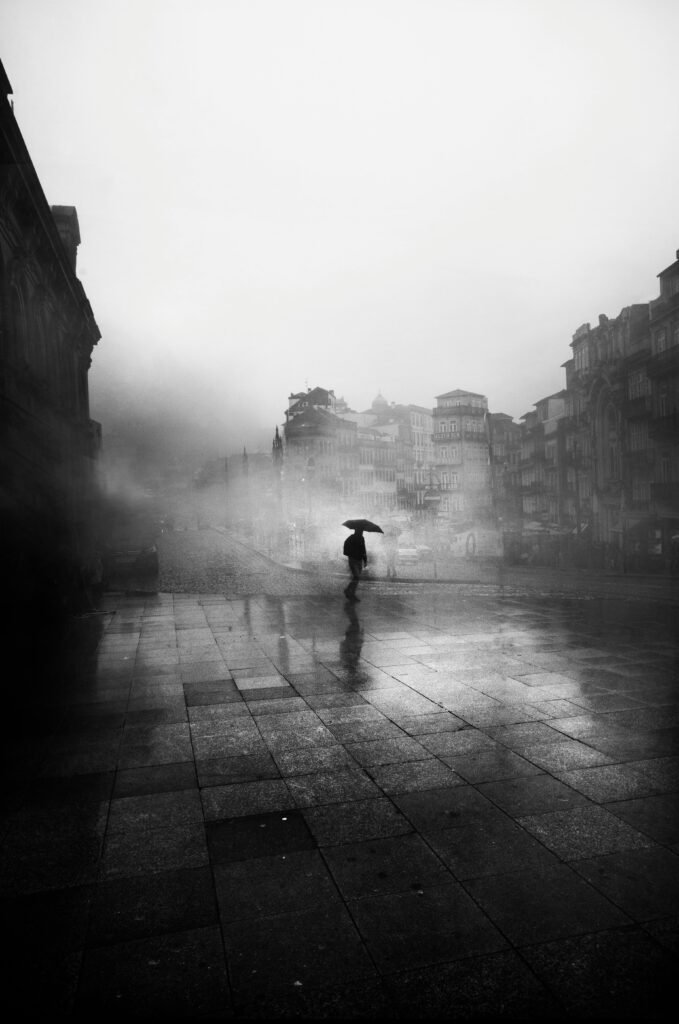As summer yields to autumn, London undergoes its annual transformation. The light changes, acquiring a particular slant that renders familiar streets suddenly strange. Mornings arrive wrapped in fog, buildings emerging like ghosts as the day progresses. It’s in this liminal season that I’m pleased to share news of my second publication: “Туманные блики” (“Foggy Glimmers”) has been accepted by a Russian literary publisher and will appear in October or November.
Unlike “Life on the Island,” which was written in English, this story is in Russian—my first published work in my native language. The narrative follows a young Russian émigré navigating London’s atmospheric streets and neon-lit passageways, gradually sensing that the city itself might be communicating with him through cryptic signs and reflections. Reality and perception blur as he becomes increasingly convinced that London is not merely a setting but a sentient entity with unknowable intentions.
I’d like to share a short excerpt, along with my English translation:
Туман скрадывал очертания зданий, превращая город в размытую акварель. Михаил шёл по узкой улочке, где газовые фонари создавали вокруг себя ореолы желтоватого света. Вывески магазинов мерцали сквозь мглу, словно сигнальные огни с далёких кораблей. Он остановился перед витриной антикварной лавки, где среди потускневших серебряных изделий и выцветших гравюр стояло старинное зеркало в бронзовой раме. В его поверхности отражался не только он сам, но и, казалось, фрагменты города, которых не было за его спиной — арки и колоннады, сады и реки, картины Лондона из разных эпох, наложенные друг на друга подобно слоям старой фотографии.
“Вы ищете что-то конкретное?” — спросил внезапно появившийся продавец, сухопарый мужчина с глазами цвета выцветших банкнот.
“Я не уверен”, — ответил Михаил, не в силах оторвать взгляд от зеркала. “Мне кажется, это скорее город ищет меня”.
“Ах, вы из тех”, — продавец улыбнулся с неожиданной теплотой. “Город выбирает некоторых. Обычно тех, кто смотрит достаточно внимательно. Но будьте осторожны с тем, что вы замечаете. Лондон не всегда раскрывает свои секреты из добрых побуждений”.
English translation:
The fog obscured the outlines of buildings, transforming the city into a blurred watercolor. Mikhail walked down a narrow street where gas lamps created halos of yellowish light around themselves. Shop signs flickered through the haze like signal lights from distant ships. He stopped in front of an antique shop window, where among tarnished silver items and faded engravings stood an old mirror in a bronze frame. Its surface reflected not only himself but, it seemed, fragments of the city that were not behind him—arches and colonnades, gardens and rivers, images of London from different epochs, superimposed on each other like layers of an old photograph.
“Are you looking for something specific?” asked the suddenly appeared salesman, a lean man with eyes the color of faded banknotes.
“I’m not sure,” replied Mikhail, unable to tear his gaze from the mirror. “It seems rather that the city is looking for me.”
“Ah, you’re one of those,” the salesman smiled with unexpected warmth. “The city chooses some. Usually those who look carefully enough. But be cautious with what you notice. London doesn’t always reveal its secrets with good intentions.”
“Foggy Glimmers” emerged from my own experience as a foreigner in London—that peculiar sensation of being simultaneously observer and observed, insider and outsider. The story explores how we project meaning onto urban spaces and how, in turn, those spaces shape our perceptions and identities.
While “Life on the Island” unfolded in a contemplative, measured tempo, this story pulses with urban anxiety and nocturnal energy. The island represented isolation as both refuge and prison; London, in “Foggy Glimmers,” becomes a labyrinth of infinite possibilities and hidden dangers. Both narratives, however, examine the thin membrane between reality and imagination, between what we perceive and what might actually exist beyond our limited understanding.
I’m particularly interested in the way cities accumulate layers of history, becoming palimpsests where the past remains visible beneath the present. London, with its Roman foundations, medieval churches, Victorian infrastructure, and postmodern skyscrapers, embodies this layering more dramatically than most metropolises. In “Foggy Glimmers,” these temporal strata become permeable, allowing glimpses between epochs.
The full story will be available next month. I look forward to sharing it with those of you who read Russian, and I’m considering preparing a complete English translation for a future publication.
“Cities, like dreams, are made of desires and fears, even if the thread of their discourse is secret, their rules are absurd, their perspectives deceitful, and everything conceals something else.” (Italo Calvino’s words from “Invisible Cities” guided me throughout the writing process)
